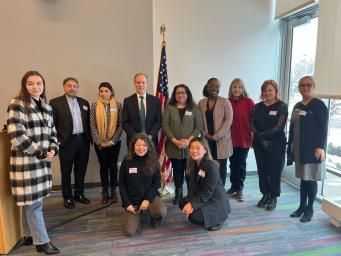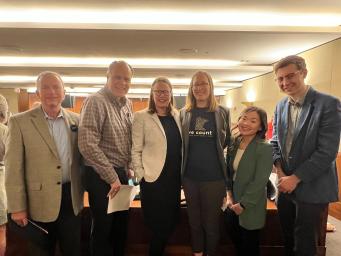NewsSee All News
Apply to Join MCF's Board of Directors
It’s that time of year when we welcome you, MCF members, to consider applying to join the MCF board of directors. Why join the MCF board? Here are a few reasons to consider.
2024 Legislative Session Wrap Up: Update on MCF’s Census & Democracy Priorities
This session, the Minnesota Council on Foundations focused on policies that support a strong and inclusive democracy in Minnesota.
Themes from the Georgetown Law Conference on Tax-Exempt Organizations: Legal Considerations for Grantmakers
Learn about legal risks and opportunities facing grantmakers in 2024.


